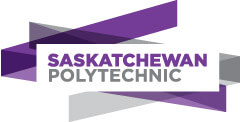About Resource And Environmental Law Diploma in Saskatchewan Polytechnic
Program Overview
From forestry to tourism, from First Nations to park users—we all enjoy Saskatchewan’s natural resources. There are laws and environmental policies in place to ensure the long-term sustainability of our fisheries, forests and wildlife.
If you want to play an active role in ensuring these laws are respected, Resource and Environmental Law will appeal to you. It’s a career that demands a strong belief in what you’re doing, a good understanding of human behaviour and excellent communication skills.
Resource and Environmental Law is a two-year diploma program that specializes in conservation and environmental law enforcement. You’ll develop solid skills in environmental protection, enforcement and investigation. You’ll learn about:
- Indigenous resource rights
- Canadian criminal justice system
- control tactics
- courtroom procedures
- environmental and field investigations
- environmental legislation and compliance
- environmental sampling
- investigative techniques
- park services and enforcement
- wildlife and fisheries management
Hands-on learning is key. You’ll augment classroom learning with lab exercises, simulated field investigations, outdoor camps and work experience. You’ll work with trainers from different government agencies, participate in ride-alongs and more.
Get Your Feet Wet and Hands Dirty
Field camps are a popular part of Saskatchewan Polytechnic’s Natural Resources programs. We have our own outdoor camp on the north side of Candle Lake. You’ll spend three weeks here in the fall learning a variety of skills. You’ll return for winter camp to learn about working in arduous outdoor conditions. Saskatchewan Polytechnic’s excellent camp facilities give you first-hand experience working in the outdoors, from learning how to pull boats over for compliance checks in the summer to ice rescue in the winter.
Are You Up for the Challenge?
Because jobs in environmental law enforcement can be physically demanding, we put Resource and Environmental Law students through the same fitness test as new RCMP recruits.
Diploma to Degree
Turn your diploma into degree. Resource and Environmental Law grads can transfer into the third year of the Bachelor of Arts Resource and Environmental Studies (BARES) program at First Nations University of Canada or the Bachelor of Science in Agriculture (major in Renewable Resource Management) at the University of Saskatchewan.
Career and Salary Information
Your Career
Resource and Environmental Law graduates can choose from a variety of career options. Work in the field as a conservation officer; environmental protection officer; park warden; or fishery, forestry or wildlife officer. Potential employers include environmental agencies, federal and provincial parks, natural resource companies, First Nation communities, even border services or law enforcement agencies.
Academic qualification equivalents:
- Grade 12 with a minimum 60% in each of the following subjects: English Language Arts A30, English Language Arts B30, Chemistry 30 and Pre-Calculus 30
English language requirements (one of the below):
- IELTS : Overall minimum score of Band 6.5 with a minimum score of 5.0 in each component.
- TOEFL : An overall minimum score of 81 on the Internet-based Test of English
- PTE : A minimum score of 63 with minimum component scores of 50.
Saskatchewan Polytechnic Highlights
| Type |
Public |
| Campus Setting |
Urban |
| Application mode |
Online and Paper mode available |
| Graduation rate |
62% |
| Acceptance rate |
96% |
| Number of Students |
16,008 |
| Overall cost of living |
14,762 CAD |
| Academic calendar |
Semester based |
| % of International students |
6% |
| Number of campuses |
4 |
| Medium of instructions |
English |
| Undergraduate Tuition fee |
14,044 CAD |
| Postgraduate Tuition fee |
16,426 CAD |
| Cost of living |
694 -1147 CAD per month |
Saskatchewan Polytechnic First-Year Tuition Fees And Living Expenses For International Students
Over the course of one academic year, the following graph displays tuition and living expense estimates in Canadian currency for one full-time international undergraduate student. Please bear in mind that these are only estimates; actual pricing will vary depending on your needs and preferences. Other factors to consider include currency changes, visa and study authorization fees, and vacations back home.
- For international students, the overall fees will range from:-
| Particulars |
Amount |
| Administrative fees |
50.00 to 150.00 CAD |
| Application fees |
150 CAD |
| Student association fee |
95.00 to 445.00 CAD |
| Non-refundable fee at the start) |
1,000 CAD |
| Tuition fee range |
6,195 to 18,089 CAD |
| Laboratory fee |
100.00 to 409.00 CAD with no fees for
some courses which do not have a lab service. |
| Books and Supplies |
200 to 3,725 CAD |
| Technology fee |
50 to 146 CAD |
- For a student of Saskatchewan Polytechnic the required financials (Cost of Attendance) can be:-
| Description of Financials |
Amount in CAD |
| Average cost of tuition |
11245.77 CAD |
| Cost of living |
10799.39 CAD |
| Application fee |
150 CAD |
| Estimated total (per year) |
22,195.16 CAD |
